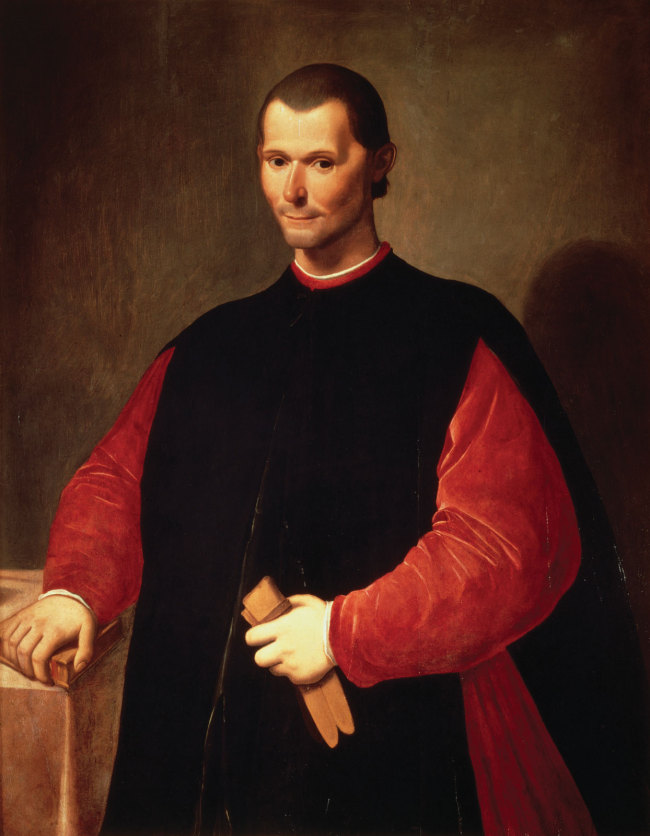Revisiting Machiavelli
‘The Prince’ manuscript, other original works on display at National Library
By Korea HeraldPublished : March 26, 2014 - 20:58
Niccolo Machiavelli’s “The Prince” is often described as a handbook for ruthless rulers. In the book, he famously wrote: “In the actions of men, and especially of princes, the end justifies the means.”
An exhibition in Seoul aims to provide a reappraisal of Machiavelli, taking visitors to Italy 500 years ago. At the time, the country was going through political upheavals, and the author dreamed of a unified and independent Italy.
“Machiavelli, Renaissance Man,” now running at the National Library of Korea, presents original documents, manuscripts and prints of Machiavelli’s work, including a manuscript of “The Prince,” alongside various artifacts from the Italian Renaissance era.
An exhibition in Seoul aims to provide a reappraisal of Machiavelli, taking visitors to Italy 500 years ago. At the time, the country was going through political upheavals, and the author dreamed of a unified and independent Italy.
“Machiavelli, Renaissance Man,” now running at the National Library of Korea, presents original documents, manuscripts and prints of Machiavelli’s work, including a manuscript of “The Prince,” alongside various artifacts from the Italian Renaissance era.

A total of 135 items are on display, most of them on loan from major museums in Italy, including the National Library of Florence.
Among them are the oldest surviving handwritten letter of Machiavelli and another letter addressed to his son Guido. Two portraits of Cesare Borgia are also on show, depicting the ruthless politician and son of Pope Alexander VI, whom Machiavelli regarded as the model of an ideal ruler.
“Machiavelli is one of the major characters of the Italian Renaissance,” said Maria Giovanna Mercuri, who put together the exhibition as the lead curator, during a press opening Monday.
She is also the wife of the Italian ambassador to Korea, Sergio Mercuri. The exhibition is organized to celebrate the 130th anniversary of diplomatic relations between Korea and Italy.
“The works he wrote are still very modern, I would say, in a certain sense, eternal, because he was capable of freeing men from all the obstacles, given by the medieval history, and he was able to show the real nature of men, which is not good or bad, but simply actual.”

“The Prince” shows Machiavelli’s understanding of human nature, she said, which was distinctively different from what humanitarians believed and taught.
He wrote: “Many men have imagined republics and principalities that never existed at all. Yet the way men live is so far removed from the way they ought to live that anyone who abandons what is for what should be pursues his downfall rather than his preservation.”
Though not directly linked to Machiavelli, copies of two important ancient maps are on view side by side: Fra Mauro’s World Map from Italy and Kangnido from Korea.
Drawn by the Venetian monk Fra Mauro around 1450, the former map is the earliest known world map of the West that shows Joseon, Korea’s last kingdom. The latter, thought to have been made in 1402, is the oldest surviving world map from East Asia.
“Machiavelli, Renaissance Man” runs until April 20 at the exhibition hall of the Digital Library inside the National Library of Korea, located near Seocho Station on Seoul Subway Line No. 2. Admission is free.
By Lee Sun-young (milaya@heraldcorp.com)
-
Articles by Korea Herald







![[Graphic News] Number of coffee franchises in S. Korea rises 13%](http://res.heraldm.com/phpwas/restmb_idxmake.php?idx=644&simg=/content/image/2024/05/02/20240502050817_0.gif&u=)

![[Robert J. Fouser] AI changes rationale for learning languages](http://res.heraldm.com/phpwas/restmb_idxmake.php?idx=644&simg=/content/image/2024/05/02/20240502050811_0.jpg&u=)








![[Eye Interview] 'If you live to 100, you might as well be happy,' says 88-year-old bestselling essayist](http://res.heraldm.com/phpwas/restmb_idxmake.php?idx=652&simg=/content/image/2024/05/03/20240503050674_0.jpg&u=)
